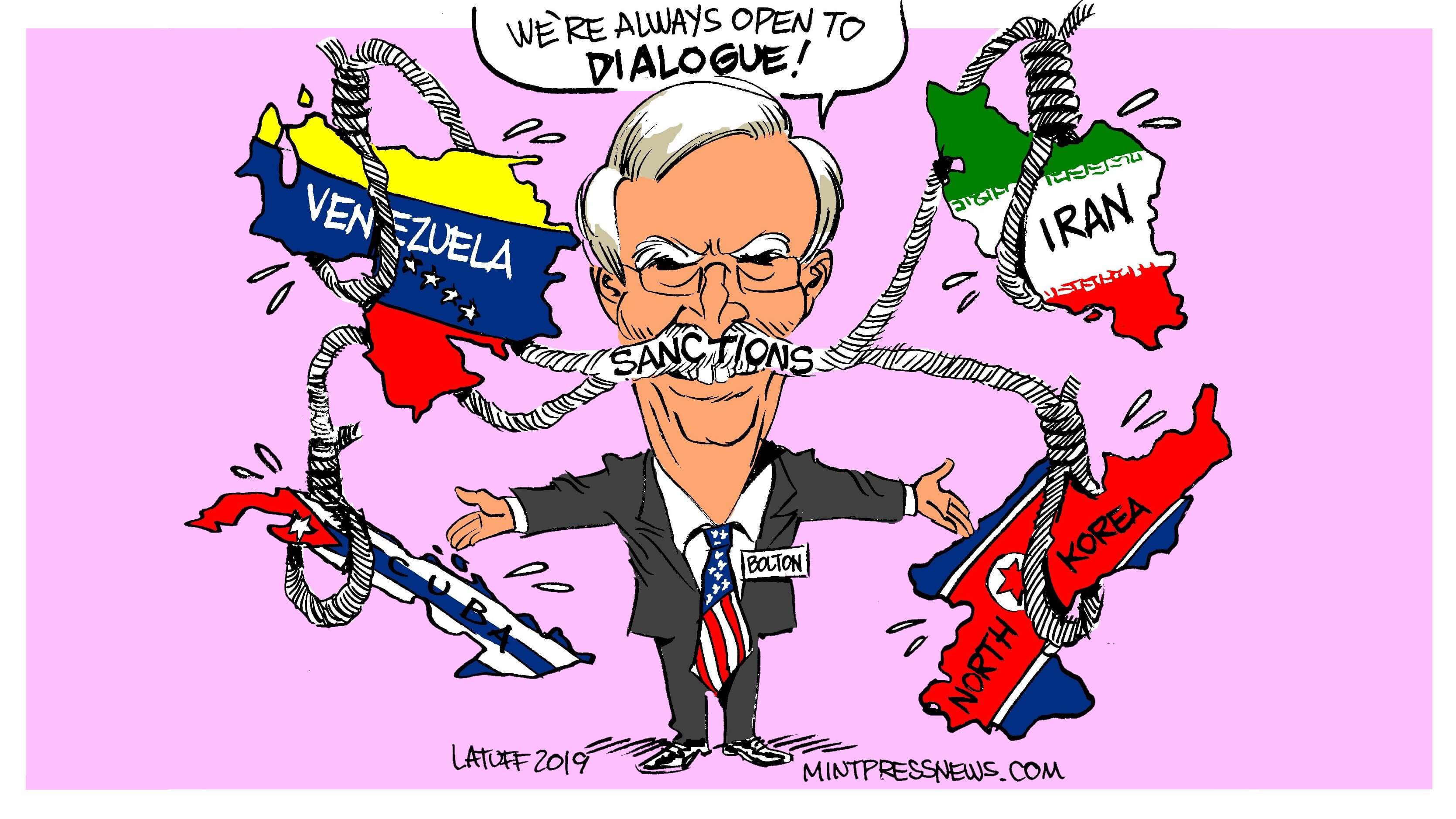More sanctions will only hurt the Venezuelan people
 |
| Michael Shifter 16/08/2019 |
‘It worked in Panama.’ This is not true.
President Trump issued an executive order on Monday imposing a new round of economic sanctions on the Venezuelan government. The action sends a clear message to Venezuela’s top military brass — the regime’s chief pillar of support. The United States will not be satisfied until President Nicolás Maduro is ousted, and Venezuela is on a path toward a democratic elections.
And yet Washington’s mounting threats and sanctions have failed to persuade the upper echelons of the Venezuelan military to abandon Mr. Maduro. In fact, they have remained loyal to the Chavista regime, in the face of economic collapse and a countrywide humanitarian crisis.
The executive order freezes the property and assets of the Venezuelan government and those individuals who provide support to the Maduro regime, building on individual, financial and oil sanctions. The American national security adviser, John Bolton, explained Tuesday at an international conference on Venezuela in Lima, Peru, that sanctions are aimed at denying “Maduro access to the global financial system” and further isolating him internationally. Mr. Bolton left no doubt that the United States was ready to penalize “third parties” (such as China and Russia) who did business with the regime.
The new policy moves the United States closer toward a full embargo, though it stops short of those imposed on Cuba, North Korea, Iran and Syria. Unless it succeeds in upending Mr. Maduro quickly, however, the economic embargo will make life worse for Venezuelans. What’s more, history suggests it may not work at all. Instead, it could have a devastating effect on the country, deepening the migration and refugee crisis in which more than four million Venezuelans have fled their country. That is an unprecedented amount in Latin America.
For the past eight months, the Trump administration has backed Juan Guaidó, the president of the National Assembly, who over 50 governments have recognized as Venezuela’s interim president. At a news conference on Tuesday Mr. Guaidó supported the escalation of United States’ sanctions and also pointed out that the executive order exempted medicine, food, clothing and humanitarian assistance. Ordinary Venezuelans may not be the target, but they will bear the brunt of whatever economic hardships and pain they bring.
The new sanctions could also undermine prospects for a negotiated settlement. The United States maintains that negotiations are a mistake, despite support for them in much of Europe and Latin America. To be sure, previous attempts at talks have been fruitless, with the Maduro government failing to negotiate in good faith. Still, the executive order comes at a moment when continuing talks sponsored by Norway between representatives of both the opposition and the regime have shown some hope of breaking the impasse and moving toward a peaceful resolution. At the Lima conference on Venezuela on Tuesday, Mr. Bolton dismissed the talks as “not serious,” and declaredthat “now is the time for action.”
Sweeping sanctions are not conducive to building confidence between both sides, which is critical for a viable deal. Indeed, late Wednesday Mr. Maduro said that he would not be sending a government delegation to attend a planned round of talks with the opposition this week. The only bargaining chip the opposition can possibly offer the regime is to persuade the United States to ease the range of sanctions in effect.
Mr. Trump’s executive order signals that he would be unwilling to do this if Mr. Maduro remains in power, which will most likely be unacceptable to the Chavistas. Still, the sanctions combined with some form of amnesty — a stick and carrot approach — just might end up encouraging the military to force Mr. Maduro out and agree to free elections in a reasonable period.
It would be far better for the Trump administration to support the Oslo framework. Over time, talks might incorporate the Venezuelan military and the United States. The White House should grant temporary protective status to Venezuelans who have come to the United States after fleeing intolerable conditions. It is hard to reconcile its refusal to do so with its professed commitment to protecting the Venezuelan people.
Mr. Bolton has tried to buttress his case about the effectiveness of such harsh sanctions by citing Panama, Nicaragua, and Cuba as success stories. With his sights set on regime change in what he has called the “Troika of Tyranny,” Mr. Bolton said, “It worked in Panama, it worked in Nicaragua once, and it will work there again, and it will work in Venezuela and Cuba.”
This is just not true. The United States resorted to military force in both Panama and Nicaragua. In the former, the United States launched a large-scale invasion that took down the government of Manuel Antonio Noriega and put him in jail; in the latter, they armed and trained the “Contras,” a local rebel group that took up arms against Daniel Ortega. For Mr. Bolton, Cuba seems like the big prize, but United States policy toward the island has failed. The regime remains intact despite an embargo that has been in place for nearly six decades.
President Trump, Mr. Bolton and other senior officials should resist going it alone and join the consensus that has emerged among many Latin American and European countries to pursue a negotiated settlement to end the Venezuelan tragedy. Washington is one of only very few governments openly opposing negotiations. As the Lima conference illustrated, putting the United States in the driver’s seat may well be undercutting the only political solution that has a chance of success.

Carlos Latuff


